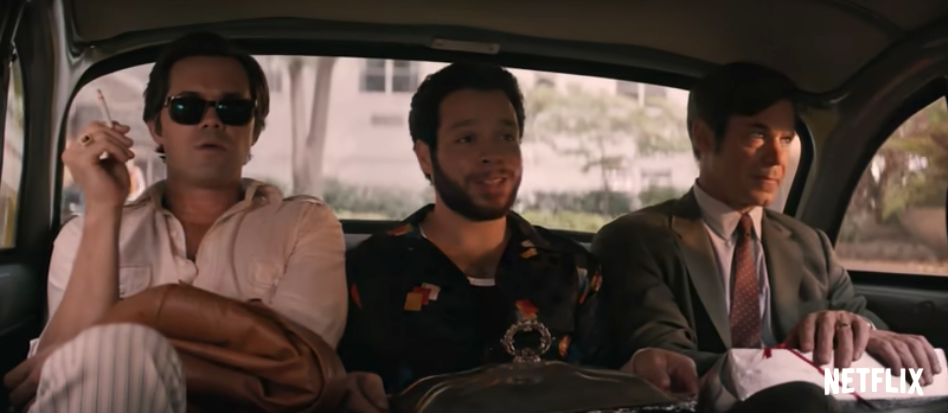by new contributor Gabriel Mayora
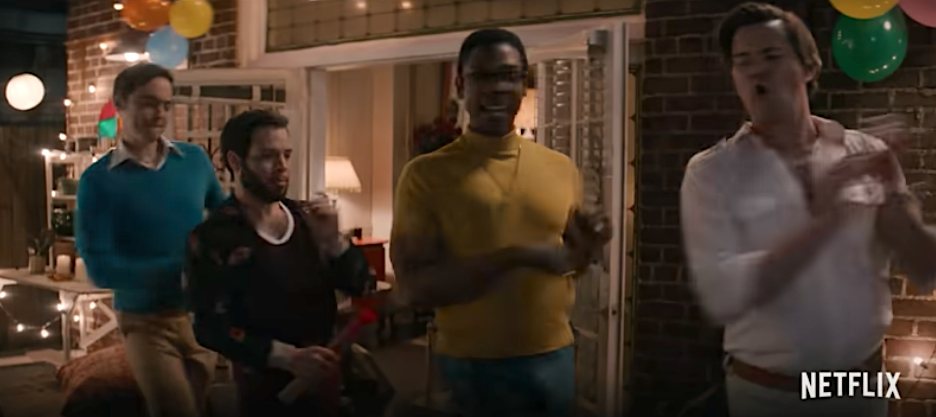
This week Netflix released the trailer for the Ryan Murphy-branded second film adaptation of Matt Crowley’s iconic and controversial 1968 play The Boys in the Band. Crowley’s play is often seen as a landmark in mainstream gay representation though at the same time as it has developed a reputation as “dated.” This new adaptation is based on the hit 50th anniversary Broadway revival produced by Murphy and helmed by acclaimed Tony-winning director Joe Mantello (who also directs the new film), with the entire cast from the revival—all of whom are openly gay actors—reprising their roles. Here’s the official IMDB synopsis:
A group of gay men gather for a birthday party in 1968 New York City, only to find the drinks and laughs interrupted when a visitor from the host’s past turns the evening upside down.
Will the remake provide audiences with a fresh new perspective on a classic gay play? Netflix is releasing the film on September 30, so we don’t have to wait too long to find out. In the meantime, let’s give the trailer the Yes, No, Maybe So treatment...
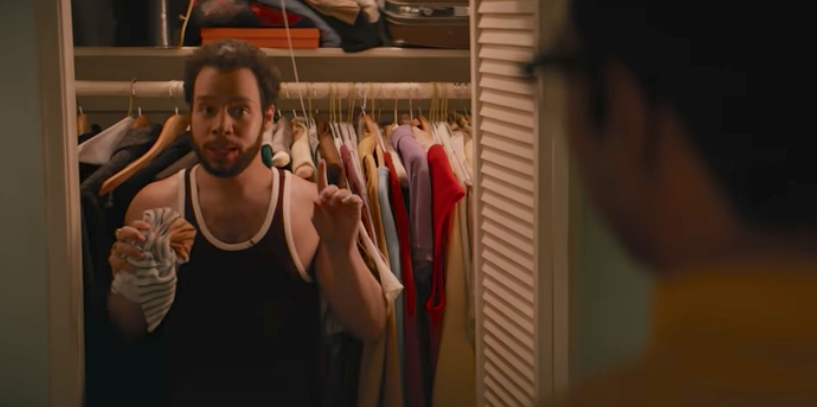
Mary, take me home. These queens are crazy.
YES
Veteran stage actor Robin De Jesús received glowing reviews for his performance in the Broadway revival. Latinx gay characters in American film are still rare and De Jesús looks like he’s having a blast playing the role without going too broad. Although he’s one of the few actors in the ensemble who is not a recognizable name beyond the theater world, his performance doesn’t come across as stagebound. The fact that he receives so much screen time in the trailer suggests he is being positioned as the scene stealer of the group. Based on what I see in the trailer, I can see why.
Given Hollywood’s long history of sidelining gay actors while rewarding straight actors for their “bravery” when they play gay characters, it is exciting to see a group of openly gay actors—most of whom have longstanding careers on film, stage, and screen—come together as an ensemble to play the type of roles they were surely told would cost them their careers when they started out in the profession.
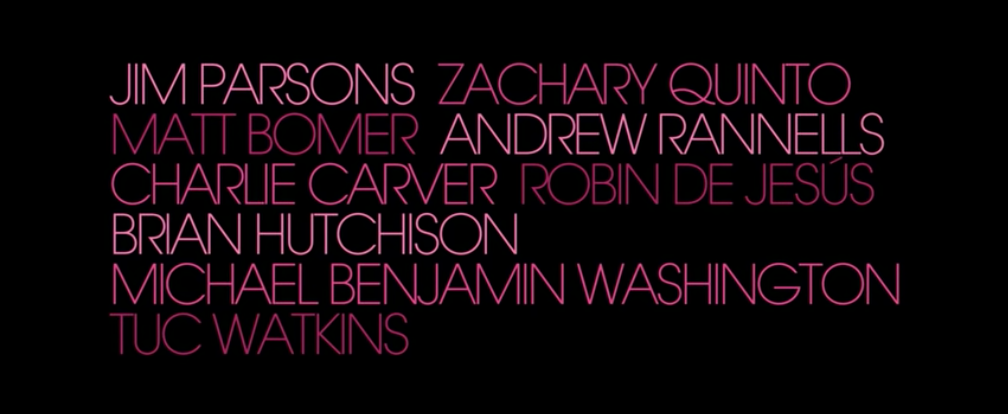
Jim Parson’s reaction after hearing his character’s straight friend utter the words: “I couldn’t care less what people do as long as they don’t do it in public”
NO
Earnest line readings of moralistic, clunky dialogue meant to telegraph the message of the play like “If we could not hate ourselves so much” tend to be the worst part of the Ryan Murphy brand and it’s not helping alleviate any concerns from those questioning the filmmakers’ ability to bring much-needed nuance to this remake.
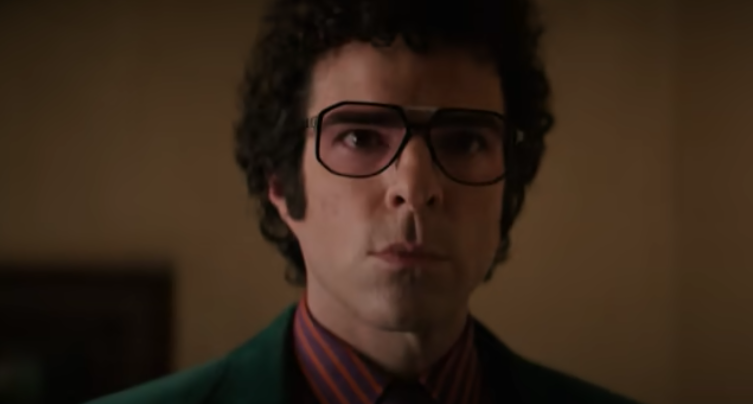
• Zachary Quinto is so woefully miscast. More troublesome is that there is little here to indicate he adapted his stage performance for the camera. The line readings come across as line readings and not in a “it’s a character choice” kind of way. He’s also the one who comes across the most like he’s wearing a costume
• Speaking of which the costumes and hair design make nearly all of the actors look like they are playing dress up.
• The decision to “open up” a play by simply switching the setting of scenes that take place indoors in the original stage production to outdoor locations or, worse, a moving car is rarely a sign of a great cinematic take (see Proof or August: Osage Country for big offenders)
MAYBE SO
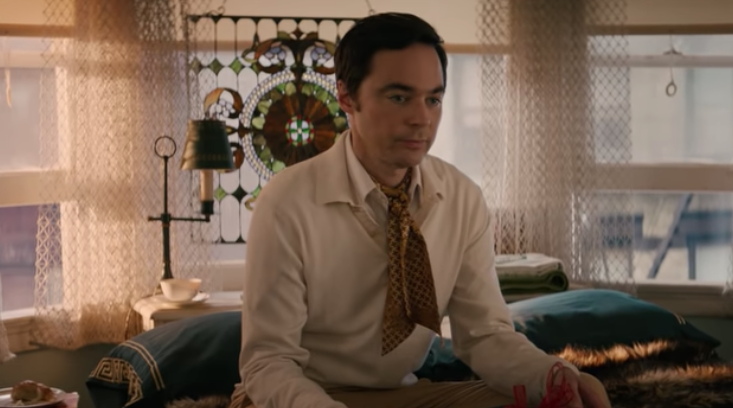
• Jim Parsons delivered a hammy, cartoonish take on a similar character type in Hollywood (somehow he was Emmy nominated). He is not the most convincing dramatic actor, but when he is playing the witty and bitter dimensions of Michael, it feels grounded. At least in this short glimpse.
• On stage, Mantello is known as an actor’s director (not surprising since, in addition to winning multiple Tony awards in the Best Director category, he has garnered Tony and Emmy nods for his own acting). His most memorable productions are grounded in the carefully calibrated, cohesive, performances he brings out from his cast. However, his only other film credit is the well-acted if cinematically uninspired screen adaptation of Love! Valour! Compassion!, another gay classic of the stage that shares a few similarities with Crowley’s play. Will Mantello come up with a way to translate what is a very stagey play into a visual medium? Or will this end up being more of a filmed play than a cinematic adaptation?
Your turn. Are you a Yes No or a Maybe So... and why?
